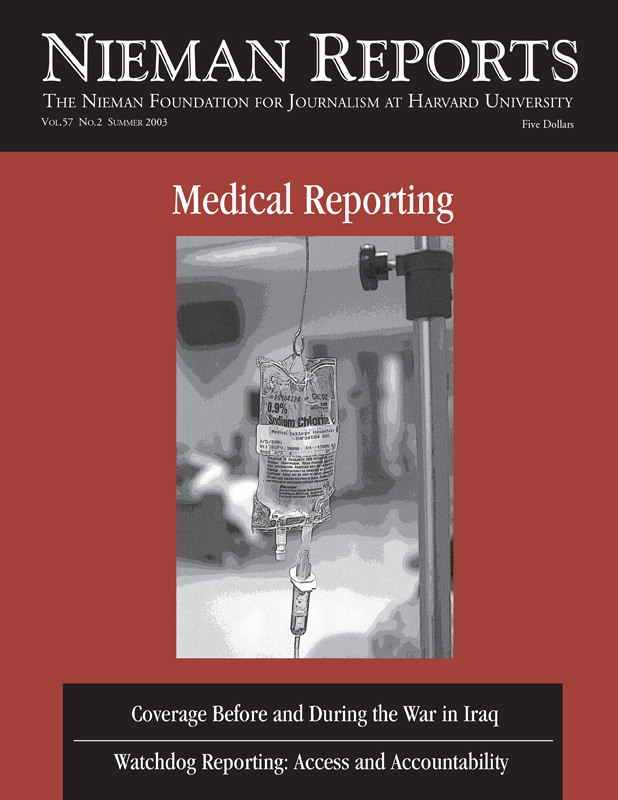ISSUE
Summer 2003

Medical Reporting
“The chasm between medical journalists and physicians appears mostly to be one of ignorance rather than conflicting interests or malice,” writes Terry L. Schraeder, who for 10 years worked as a medical journalist before entering medical school. Now doing her residency in internal medicine, she uses these experiences to highlight the problems between journalists and doctors and ways to close the widening gap of distrust. She is convinced that only when they “understand the other’s professional training, education, deadlines, responsibilities, codes of ethics, and internal stresses” will the chasm narrow. – Melissa Ludtke, Editor